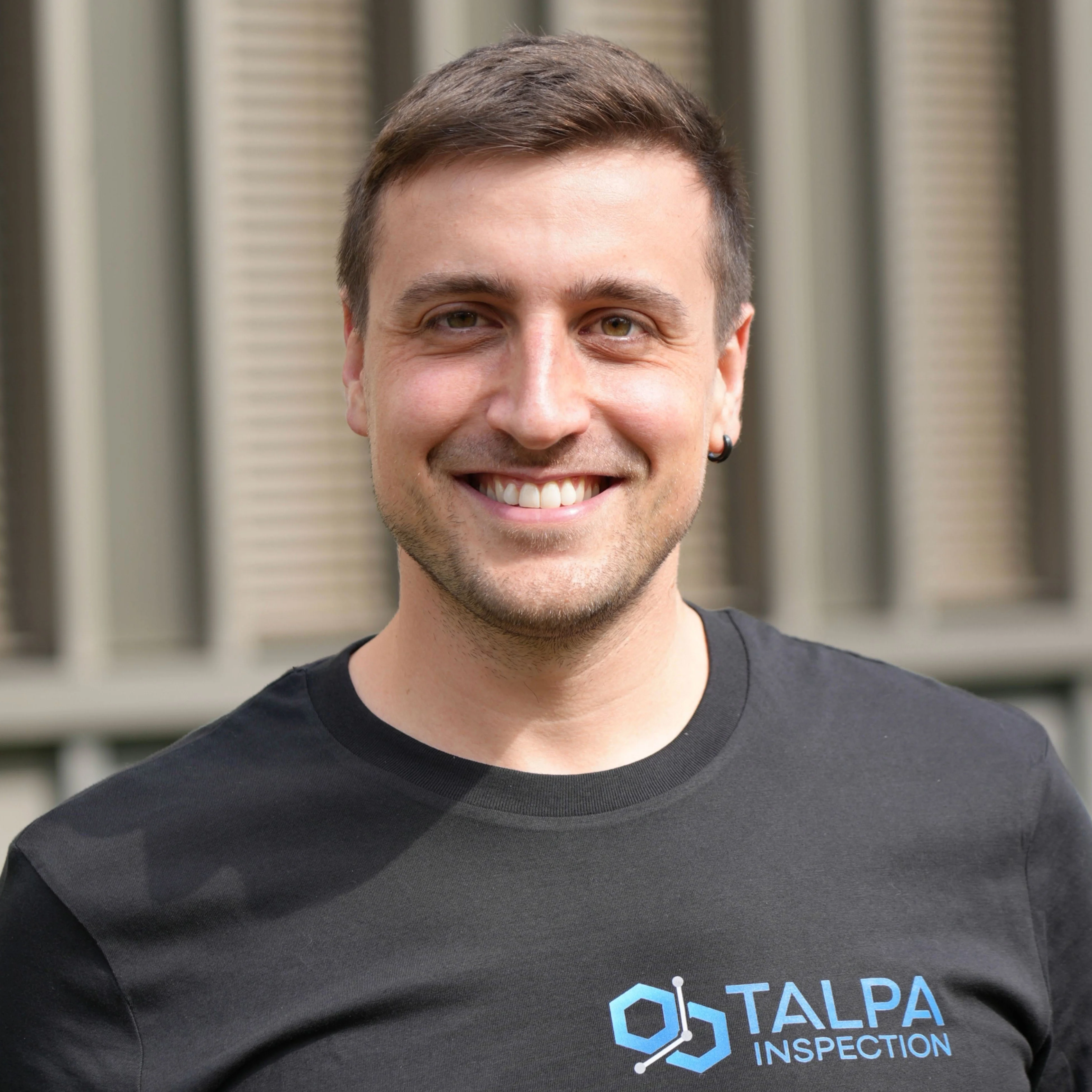AIT India 2025/26: TALPA Inspection
Meet Federico Martinelli-Orlando, one of the ten participants in the 2025/26 edition of the Academia-Industry Training India programme.
Interview with Federico Martinelli-Orlando

“At TALPA Inspection, we address the critical inefficiency in current infrastructure assessment and maintenance. Existing inspection methodologies are too slow to keep pace with the deterioration of our aging concrete structures – a race against time we are currently losing.”
What problem does your startup solve, and why is it important to you personally?
At TALPA Inspection, we address the critical inefficiency in current infrastructure assessment and maintenance. Existing inspection methodologies are too slow to keep pace with the deterioration of our aging concrete structures – a race against time we are currently losing. This mission is deeply personal. The tragic collapse of the Morandi Bridge in Italy was a disaster and a wake-up call to do better. As a materials engineer specializing in corrosion science, I feel a professional and moral responsibility to improve our situation.
What inspired you to become a sciencepreneur, and what has been your biggest “aha!” moment so far?
I was inspired by the massive disconnect between the research we were doing in the lab and the inefficient, currently used tools in the field. My biggest “aha!” moment came in two stages: first, when we coupled our non-contact sensor with a robotic system and saw how easily and effectively it worked in the first tests. However, the true realization of the potential came right after, when we combined that electrochemical data with other sensor data to project a full corrosion assessment onto a 3D reconstruction. Seeing that first digital twin made me understand the real, transformative power of what we were building.
What unique perspective does your academic background bring to your startup?
My academic background, which is focused on the electrochemistry of corrosion and the protection of steel in porous media like concrete, is one of the pillars of our company. This deep, scientific know-how allows us to understand the data acquisition process at a fundamental level, which is critical for optimizing our sensor system for maximum efficiency and reliability. We have based our company on this blend of experience from both research and industry, which gives us a unique perspective.
What’s one surprising lesson you’ve learned since launching your startup?
A key lesson we’ve learned early on is how dynamic startup life really is. Our initial idea served as a launchpad, but feedback and rapid testing pushed us to pivot sooner than anticipated. This agility has proven invaluable, enabling us to refine our direction and deliver more meaningful solutions.
If you could host a dinner with three innovators (past or present), who would they be and why?
Alessandro Volta, the inventor of the battery. He laid the foundation for the entire field of electrochemistry. I would love to understand his thought process as he was discovering such a fundamental principle of science, a principle that is at the core of our own technology today.
Hideo Kodama, the inventor of the 3D printing process. This technology fascinates me. 3D printing is a personal hobby, and I have a deep appreciation for his ability to imagine and create a technology that has so completely disrupted modern prototyping and manufacturing.
Alfonso Bialetti, the inventor of the Moka pot. Since I function thanks to coffee every
day, I feel I owe him a personal “thank you” for creating a simple, elegant, and timeless piece of engineering that brings so much value to so many people’s daily lives.